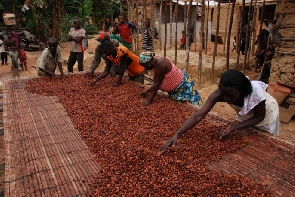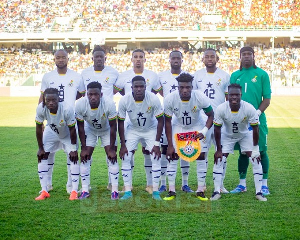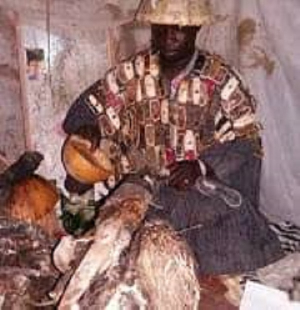The two largest cocoa producers – Ghana and Ivory Coast – failed to agree on a floor price with major cocoa beans buyers and manufactures at a meeting held in the Ivorian city of Abidjan.
The two countries, which produce 60 percent of the world’s cocoa beans, had earlier proposed a floor price of US$2,600 per tonne of cocoa (free-on-board) – below which they will not sell the commodity for the 2020/2021 season – at a maiden meeting between the producers and buyers held in the Ghanaian capital, Accra.
The meeting in Abidjan – attended by major chocolate companies such as Hershey, Mars Inc., Blommer Chocolate, Cemoi, SucDen, Mondelez International, Touton, Barry Callebaut, Cargill, Olam International and Ecom Trading – was to further discuss the proposed price, and possibly agree on it for eventual implementation in the 2020/2021 crop season.
John Ament, Global Vice President of Cocoa for Mars, told Reuters that: “We support moves by governments to intervene to achieve a higher price that leads to a sustainable increase paid to the farmer”.
After the meeting in Abidjan, a company official who asked not to be named told Reuters: “The mechanism that Ghana and Ivory Coast proposed to us still lacks clarity and precision for its adequate application, so there will need to be more meetings,” said one
Joseph Boahen Aidoo, CEO of the Ghana Cocoa Board, however believes that the proposed price is key to ensuring farmers earn a living wage and improve their living standards.
Mr. Boahen Aidoo, at a news conference said: “They aren’t obliged to accept, because it’s a free market. If they don’t want to pay the price that we are proposing, they can go elsewhere”.
The cocoa industry has contributed significantly to Ghana’s economic development over the years. Cocoa contributes about a quarter of Ghana’s Gross Domestic Product (GDP).
The industry has over the years created employment for millions of Ghanaians and serves as a major source of foreign exchange for the country.
However, poor prices have left many cocoa farmers barely able to properly provide for their families – and more importantly, made the industry unattractive to a large section of the youth.
One of the main functions of the Ghana Cocoa Board (Cocobod) is to purchase, market and export cocoa and cocoa products produced in Ghana. In recent years, the price of cocoa on the international market has been fluctuating.
The average free-on-board (fob) price of cocoa recorded in the 2017/2018 season was US$2,080 – a drastic fall from US$2,950 per tonne in the previous year.
This decline in price coincided with a significant rise in cocoa production – by over 120,000 tonnes above the projected 850,000 tonnes for 2016/17 season, which remained above 900,000 tonnes for the subsequent 2017/2018 season.
Business News of Friday, 5 July 2019
Source: thebftonline.com

















